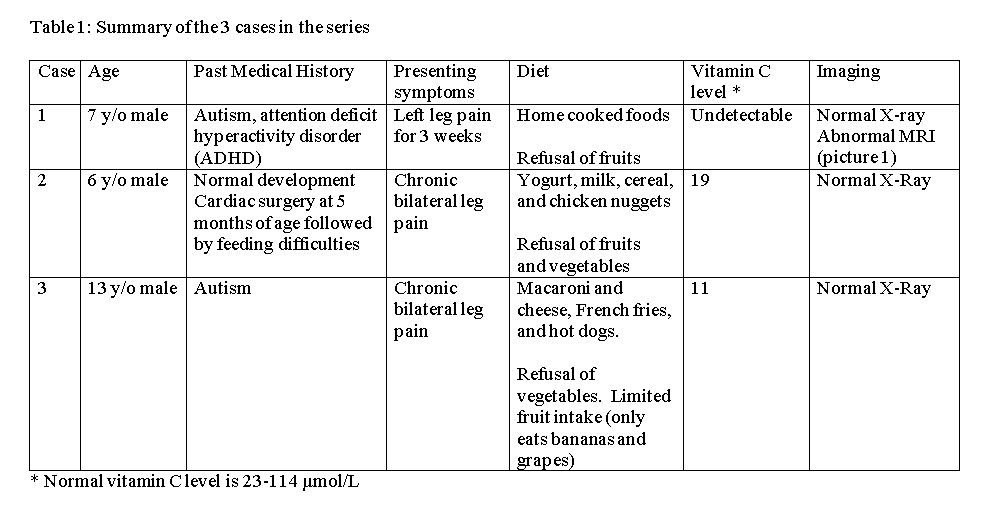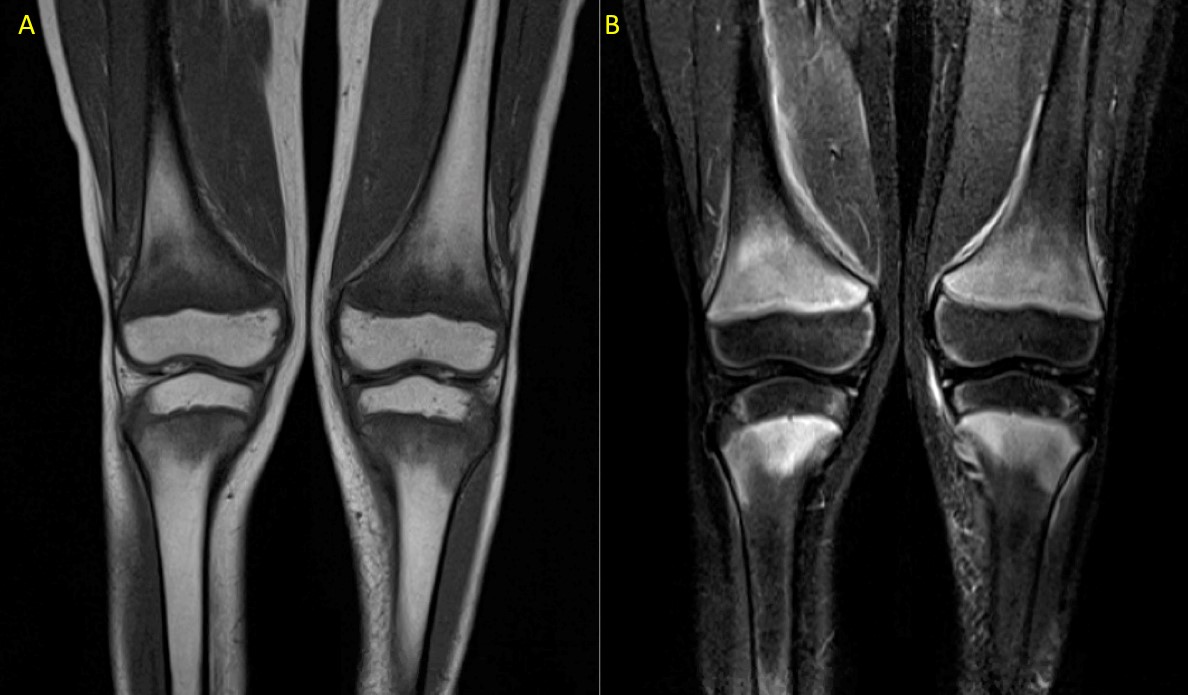Session Information
The 2020 Pediatric Rheumatology Symposium, originally scheduled for April 29 – May 2, was postponed due to COVID-19; therefore, abstracts were not presented as scheduled.
Date: Friday, May 1, 2020
Title: Poster Session 2
Session Type: ACR Abstract Session
Session Time: 5:00PM-6:00PM
Background/Purpose: Vitamin C is essential in bone formation: it acts as a cofactor in forming and stabilizing the collagen triple helix. Exogenous intake of vitamin C is vital as humans cannot synthesize vitamin C and its absence may lead to scurvy. Classic symptoms of scurvy including bone pain, petechiae, gum bleeding, and corkscrew hair may be absent, leading to under-recognition and unnecessary investigations. The objective of this study is to increase awareness of vitamin C deficiency in those who present with limb pain to a pediatric rheumatology clinic.
Methods: We performed a retrospective review of patients in the pediatric rheumatology clinic at Cleveland Clinic Children’s Hospital from 2018-2019. Blood test for Plasma vitamin C level was selectively ordered in patients with relevant history and physical finding for vitamin C deficiency. Plasma vitamin C level was measured by high performance liquid chromatography at ARUP laboratory (Salt Lake City, Utah USA).
Results: Among 3 cases in our series, case 1 is highlighted below:
A 7-year-old male with autism presented with severe left knee pain and refusal to bear weight for a duration of 3 weeks. His left knee was fixed in flexion and had limited passive extension due to pain. Initial tests revealed leukopenia (2800 cells /µL) and neutropenia (1300 cells/µL) that led to hospitalization due to a concern for an oncologic process. Blood smear and flow cytometry were negative for abnormal cells. Radiographs of the left leg were normal. Magnetic Resonance Imaging (MRI) of bilateral legs showed multiple areas of low T1 and increased T2/STIR marrow signal in the distal femur and proximal tibia/fibular metaphysis with epiphyseal sparing concerning for leukemia/lymphoma versus chronic recurrent multifocal osteomyelitis [Image 1]. He was scheduled to undergo a Positron Emission Tomography scan and a bone marrow biopsy. Prior to completing these, he was found to have an undetectable vitamin C level, consistent with his history of aversion to all fruit. The procedures were canceled and he was diagnosed with vitamin C deficiency(scurvy). After receiving vitamin C supplementation, he had full resolution of his pain a month later.
Following Case 1, our pediatric rheumatology group had an increased awareness of vitamin C deficiency in patients with restricted diet who presented to our division. Two more cases were identified [Table 1]. Symptoms in all of these cases gradually improved after vitamin C supplementation was initiated.
Conclusion: Vitamin C deficiency should be on the differential diagnosis for those patients presenting with extremity pain who also have restrictive diet, autism, or developmental delays. MRI findings can resemble osteomyelitis and malignancy, making a detailed diet history crucial to the early recognition of scurvy and prevention of further unnecessary and potentially invasive evaluation.
To cite this abstract in AMA style:
Panupattanapong S, Zeft R, Robinson A, Zeft A. Vitamin C Deficiency: An Under-Recognized Cause for Pediatric Limb Pain [abstract]. Arthritis Rheumatol. 2020; 72 (suppl 4). https://acrabstracts.org/abstract/vitamin-c-deficiency-an-under-recognized-cause-for-pediatric-limb-pain/. Accessed .« Back to 2020 Pediatric Rheumatology Symposium
ACR Meeting Abstracts - https://acrabstracts.org/abstract/vitamin-c-deficiency-an-under-recognized-cause-for-pediatric-limb-pain/


